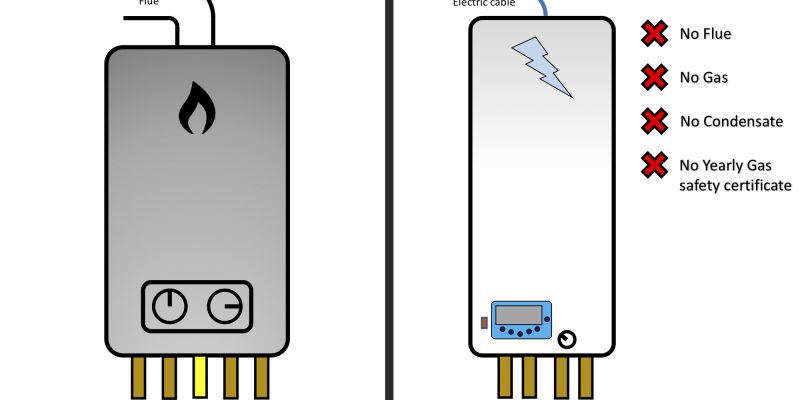Gas boilers are used to heat water which is distributed throughout a building to provide warmth. Over time, they may require replacement to improve performance and safety.
The process of gas boiler replacement several steps, such as assessing the existing system, selecting a new boiler, installation, testing, and instructions on how to operate the new boiler.
It’s recommended to have regular boiler servicing to maintain its efficiency and prevent breakdowns.
Boiler servicing London companies keep the boiler in good working order. A qualified heating engineer can carry out annual servicing to identify and repair any potential issues. This can help prolong the life of the boiler and ensure it operates safely and efficiently.
Why do You Plan to Replace Your Boiler?
To choose the best course of action, let’s first examine the most typical justifications for upgrading your boiler.
- Definitely beyond saving.
It might be time to make the switch if you consult a boiling repair London service provider and their technician to determine that the expense of repair would outweigh the cost of a new boiler. You can get advice on your next boiler by talking to the installer.
You may need a new boiler if your old was just not the best option for your home in the first place. Getting a new boiler will give you access to a more effective model, which will likely result in long-term cost savings.
- It’s outdated and ineffective
A boiler’s efficiency decreases with age. It results from a mixture of damage, improved technology, and rules that reduce the operating expenses of boilers.
Although your 12-year version may be reliably providing you with hot water and even hold emotional value, it’s likely that you’re spending higher expenses and leaving larger carbon emissions.
- Your demands are altering
It’s vital to keep in mind that various boilers have separate methods, and prices will adjust to reflect this. In general, you’ll need more pipes and containers if you’re switching from a combi boiler to a network boiler either from one of those kinds to a traditional boiler.
Nevertheless, if you’re facing the opposite way, you can usually use the majority of the current hardware, which will result in gas boiler replacement that is less expensive.
- You plan to sell your house.
There are two categories of people who look for a home: people who would like to move in, unload their things, and live life, as well as those seeking an inexpensive renovator. Naturally, the second will be ready to pay extra than the first, so making sure they have as little else when they move in can increase the worth of your house.
Simply put, by installing a new boiler, you’re reducing the trouble of the incoming owner’s transfer, and they’re willing to pay for it.
Also keep in mind that if your boiler is extremely old and has a poor level of effectiveness, it will undoubtedly be included in the survey, and you risk scaring away potential purchasers hoping for a smooth move-in process.
- Process of gas boiler replacement:
When it comes to gas boiler replacement, it’s crucial to first have your authorized installer assess your home. In terms of selecting the best sort of boiler and the capacity, it should have, your selected experts will examine the building materials used in your home, the area of the chambers, and the number of openings.
Several measures to take on the installation day
- The first task will be to remove the old boiler. Depending on the current system, the old boiler removal will take a certain amount of time.
- A power wipe may be necessary, depending on the system’s condition.
- Because of the placement of your new Boiler, your pipelines may have to be modified or replaced. There are so many companies that can help you for replacing your boiler.
- Based on your choices and the category of boiler you select, the installation of your new boiler may take place either where your current boiler is currently located or in a new place.
- After that, a structured filter must be put in. Your boiler is kept as clean and effective as possible by the filters of the system.
- After your new boiler is completely installed, your technician will audit the system to ensure everything is operating as it should.
- Next, either the house owner or the integrator must register the boiler with the boiler supplier in order for the guarantee to function properly.
Conclusion :
Gas boilers may require replacement to improve performance and safety. The process of gas boiler replacement involves several steps, including assessing the existing system, selecting a new boiler, installation, testing, and instructions on how to operate the new boiler.
Regular boiler servicing is recommended to maintain its efficiency and prevent breakdowns. Upgrading a boiler may be necessary if it’s beyond saving, outdated, and ineffective, if demands are changing, or if planning to sell a house.
Finally, the new boiler is audited to ensure it’s operating correctly and registered with the boiler supplier for the guarantee to function properly.
Also Read: Simple Steps to Replace a Kitchen Sink Without Stress










Comments